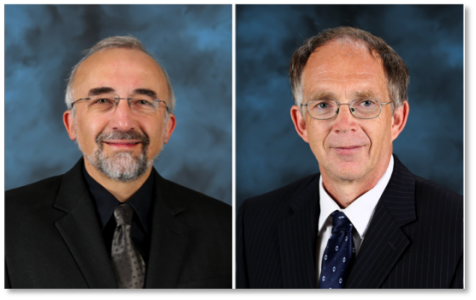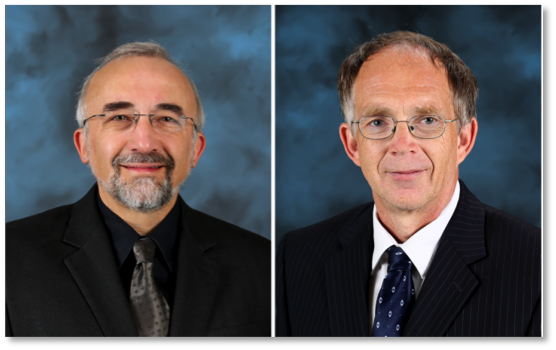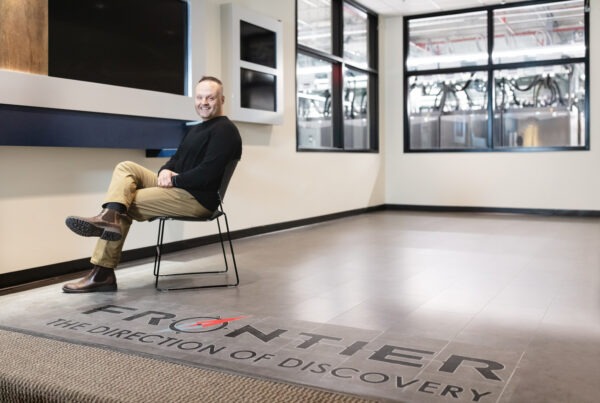Nazarewicz, Sumpter named corporate fellows
Two prominent OLCF users were recently named UT-Battelle Corporate Fellows.
UT-Battelle manages ORNL for the Department of Energy.

OLCF Users “Witek” Nazarewicz (left) and Bobby Sumpter were both named UT-Battelle Corporate Fellows
“Witek” Nazarewicz is an international leader in theoretical nuclear physics and is widely recognized as a principal driving force behind research on the physics of exotic nuclei. His team used Jaguar and density functional theory to determine that there are about 7,000 possible combinations of protons and neutrons allowed in bound nuclei with up to 120 protons (a hypothetical element called “unbinilium”), work that continues on Titan. The team’s results are presented in the June 28, 2012 issue of the journal Nature. Witek also served as scientific director of the Holifield Radioactive Ion Beam Facility at ORNL from 1999 to 2011.
He holds a professorship at the University of Tennessee–Knoxville, where he is the James McConnell Distinguished Professor of Physics.
Bobby Sumpter leads both the Computational Chemistry and Materials Science group in the Computer Science and Mathematics Division and the Nanomaterials Theory Institute at the Center for Nanophase Materials Sciences at ORNL. He has been exceptionally productive at the confluence of theory and experiment, working across organizational boundaries to provide theory and modeling leadership across disciplines.
His recent work on Jaguar and Titan includes investigating a next-generation capacitor, a device that stores energy through charge separation at an electric double layer formed within porous materials. As transportation systems are electrified, fast charging of vehicles with such devices will be necessary. Iterating between simulation and experiment to reduce intermediate models, within 2 years Sumpter’s team and collaborators at Rice University arrived at a practical device for high-power energy delivery. Their supercapacitor stores—and quickly discharges—a thousand times more energy than a conventional capacitor.
Sumpter received his bachelor’s degree in chemistry from Southwestern Oklahoma State University and his doctorate in physical chemistry from Oklahoma State University. He has published more than 300 papers with 6,000 citations.






